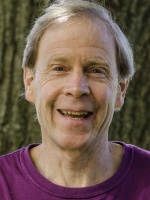非常抱歉,
你要访问的页面不存在,
非常抱歉,
你要访问的页面不存在,
非常抱歉,
你要访问的页面不存在,
验证码:

职称:Professor
所属学校:Cornell University
所属院系:College of Agriculture and Life Sciences
所属专业:Microbiology, General
联系方式:(607) 255-2417
Dr. Madsen`s fundamental research interests are in documenting the "who", "what", "how", "where", "when", and "why" of microbiological processes in soil, water, sediments, and ground water. Microorganisms play a critical role in biogeochemical cycling of carbon , nutrients, and pollutant compounds in the soil habitat. Yet, methodological limitations of environmental microbiology are substantial. For instance, despite its relevance to society, proving that microbial populations are truly active in catalyzing biodegradation of toxic organic pollutants in a given habitat is a difficult task. A synthesis of toxicological, genetic, biochemical, physiological, analytical chemistry, and field-site research will successfully lead to progress in understanding how to measure, verify, and harness microbially-mediated processes that affect environmental quality. Ongoing research projects have objectives that include characterizing soil and subsurface (ground water) microorganisms and their activities, devising criteria for documenting detoxification processes in contaminated sites, discovering factors that govern reductive dechlorination reactions of halogenated organic compounds, using molecular biological methods to assess horizontal gene transfer and other mechanisms of microbial adaptation to pollutant compounds, understanding geochemical and physiological characteristics that may prevent or foster microbial activity, and developing a rapport with the biogeochemistry of field sites so that realism is an integral part of conceptual advancements in environmental microbiology. Recent genome sequencing by the U.S.D.O.E. of Polaromonas naphthalenivorans (a bacterium active in situ in metabolizing naphthalene in polluted sediment) paves the way for studies aimed at identifying the genetic basis for ecological fitness.
Teaching statement At Cornell University, I teach 3 courses: NTRES/SNES 1101 Introduction to Environmental Science and Sustainability (co-taught with J. P. Lassoie or Tim Fahey until 2011; taught solely by Maden 2012; co-taght with Clifford Kraft 2013 onward) 3 cr. FALL annually. This is a freshmen orientation course (65 -80 students) that surveys frontiers in environmental science, introduces students to active Cornell faculty researchers, and includes weekly field trips illustrating a variety of environmental science and sustainability issues. I also teach BioMI 3970 Environmental Microbiology 3 cr. SPRING alternate years beginning 2010. This course presents a comprehensive picture (from genomics to physiology to ecology to methodological techniques to biotechnology) of environmental microbiology to advanced undergraduates. Readings in a textbook, study questions, multiple essays, and oral discussions are used to achieve learning objectives. I also teach BioMI 6902 Graduate Lecture Course in Environmental Microbiology 1 cr. FALL annually. This course alternates between lectures and review/ group discussion of the primary scientific literature. Emphasis is placed on developing critical scientific abilities and preparing a written critique and summary of published scientific studies. [also BioMI 1001, 1002 Explorations in Biology (single-afternoon presentation to freshmen biology majors entitled “Bioremediation Demystified”)] I am dedicated to conveying to students information about how our biosphere functions and the roles of microorganisms in maintaining our biosphere. The discipline of environmental microbiology requires mastery of a variety of multifaceted disciplines (ranging from geochemistry to biochemistry to molecular biology to molecular phylogeny to ecology). Acquiring these disciplines and merging them together is an art that takes time. My goal is to accelerate the time for students to learn the discipline. I do this with enthusiasm by asking students to read relevant information (in my textbook and in primary literature sources). They also receive lectures from me. Furthermore, I rely upon classroom discussions between students to provide another key avenue for learning. The freshman environmental science course relies upon both essay writing and experiential learning (from the field trips).